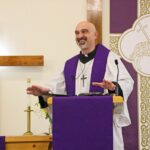This devotion is the first in the series that parallels the Bible Study series “Our Wise Friends: Engaging with the Wisdom Literature of the Bible” Follow the link to see the rest of the study and the other devotions in this series.
Download a PDF of this devotion here.
“Knowledge is power” so the saying goes. But that’s only partially true. Knowledge, without understanding how to use that knowledge, is futile. It doesn’t really get you anywhere.
Students can learn how to solve mathematical problems yet lack any understanding of how to use that knowledge. A person can learn how to use a gun, but without the wisdom of how and when to use it, that gun in the hands of that person becomes a liability to the one who carries it and to those around him.
A person can have knowledge of the Bible without wisdom as well. Bible study isn’t intended so that we can learn facts to crush it at Bible Trivia. Knowing where Corinth was located is fine, but understanding and applying the message of Paul’s letters to the church in Corinth is far better.
Personal devotions aren’t done so that you can simply gain more knowledge; Wisdom should be a major goal of our studies.
Wisdom isn’t just knowing things; it’s knowing what to do with knowledge. Old Testament scholar Horrace Hummel wrote that, “Functionally, very often one could define ‘wisdom’ then as ‘ability to cope’—with life in its broadest dimensions, as well as with specific tasks.”
Biblical wisdom helps us to understand life and to cope with it.
Proverbs 1:7 says, “The fear of the LORD is the beginning of knowledge; fools despise wisdom and instruction.”
True wisdom always begins with faith in the Lord. Wisdom recognizes that He is the Creator, and we are creatures. He is wisdom and we can be made wise through Him.
Apart from the Lord there is only foolishness. Seeking to navigate life without consulting the author of life is folly. Trying to understand the creator and simultaneously ignoring the Creator will inevitably lead to misusing and misunderstanding the creation.
But we can consult the author of life and learn from Him how things were created to be. We can fix our eyes on Jesus and see the Savior, but also the example for how we are to live.
In the books of wisdom literature, we will find wisdom from the Lord. Each of the books we study will have a different perspective, but it’s all wisdom from the Lord. And that wisdom will help us to navigate our world and to endure in faith.
Prayer
O God, Your divine wisdom sets in order all things in heaven and on earth. Put away from us all things hurtful and give us those things that are beneficial for us; through Jesus Christ, Your Son, our Lord, who lives and reigns with You and the Holy Spirit, one God, now and forever. Amen. (collect for Proper 24)
Journal Questions
- How can you go about studying God’s Word in search of wisdom rather than just looking for knowledge?
- Who are some wise people in your life or at church? What makes them stand out as being wise?









0 Comments